
It is going to be a long hot summer following the wintry start of the Arab spring. Here is a little comic relief from Youtube: http://www.youtube.com/watch?v=lqJDuZIcQ34&NR=1

It is going to be a long hot summer following the wintry start of the Arab spring. Here is a little comic relief from Youtube: http://www.youtube.com/watch?v=lqJDuZIcQ34&NR=1
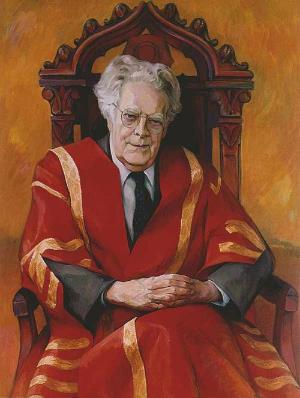
Northrop Frye
by Todd Lawson, University of Toronto, Dept. of Near and Middle Eastern Civilizations
In the course of my ongoing research project, studying the Qur’an as a special instance of apocalyptic discourse, I have found that the writings of Northrop Frye hold important clues and suggestions for both the apocalyptic élan of the Qur’an and the related problem of the Qur’an’s status as a specific form of epic. The two seem to go together and I am exploring these cross-pollinating and mutually energizing literary dynamics in the book that will result. In the meantime, I have found that Frye deserves to be mined more deeply for what is obviously his irresistible interest in the Qur’an.
Over the last two years, I have conducted a grad seminar at the University of Toronto entitled “The Quran and the Apocalyptic Imagination.†A large part of the discussion in this course has focussed on Frye and what he might have to say about the Quran. I have also conducted an undergraduate seminar “How Does the Qur’an Mean” in which two texts have been assigned: the Qur’an and Frye’s Double Vision. It has been a revelation. In part, this has been an attempt to have a conversation that I never had the nerve to initiate while the great man was alive and working away happily, virtually across the street. In any case, the results have been extremely encouraging. I am now delving deep into the Frye archive and studying his marginalia and other related documents.
Frye’s explicit references to Islam and the Qur’an, though few, have long been in print. I am calling for a workshop to see if we can manage a coherent discussion around this general theme. Continue reading Northrop Frye and the Qur’an
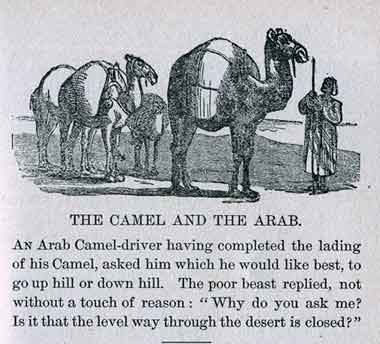
Aesop’s Fables, 1888, p. 132
One of the joys of returning home to where I was born is going through the books that my grandmother once owned. In a previous post I mentioned an 1888 edition of Aesop’s Fables, translated by George Fyler Townsend. In leafing through the fables I found several that talk about camels and one that refers to an “Arab.”
In this post I provide three of the fables, Continue reading Aesop’s Fabulous Camels (and an Ass) #2
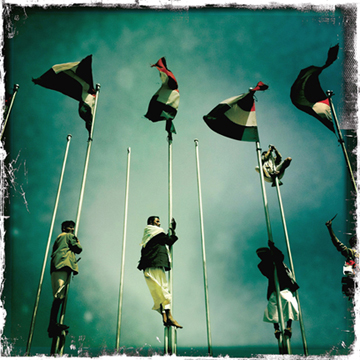
Photo by Karim Ben Khelifa
By TAWAKKOL KARMAN, The New York Times, June 18, 2011
Sana, Yemen
AFTER more than five months of continuous protests, I stand today in Change Square with thousands of young people united by a lofty dream. I have spent days and nights camped out in tents with fellow protesters; I have led demonstrations in the streets facing the threat of mortars, missiles and gunfire; I have struggled to build a movement for democratic change — all while caring for my three young children.
We have reached this historic moment because we chose to march in the streets demanding the resignation of President Ali Abdullah Saleh, an end to his corrupt and failed regime and the establishment of a modern democratic state. On June 4, our wish for Mr. Saleh’s departure was granted, but our demand for democracy remains unfulfilled.
Following months of peaceful protests that reached every village, neighborhood and street, Yemen is now facing a complete vacuum of authority; we are without a president or parliament. Mr. Saleh may be gone, but authority has not yet been transferred to a transitional presidential council endorsed by the people.
This is because the United States and Saudi Arabia, which have the power to ensure a peaceful transition to democracy in Yemen, have instead used their influence to ensure that members of the old regime remain in power and the status quo is maintained. American counterterrorism agencies and the Saudi government have a firm grip on Yemen at the moment. It is they, not the Yemeni people and their constitutional institutions, that control the country. Continue reading Yemen’s Unfinished Revolution

One of the joys of returning home to where I was born is going through the books that my grandmother once owned. One of these is an 1888 edition of Aesop’s Fables, translated by George Fyler Townsend, as shown in the frontispiece above. The cover, which is dark brown, notes it is a “Caxton Edition” and includes a marvelous quote from Thomas Carlyle: “May blessings be upon the head of Cadmus, the Phoenicians, or whoever it was that invented books.” I suppose today we must add: “And curses upon the creator of the Internet idea of an e-book.” As noted in the preface, not all of these tales date back to Aesop; some indeed were thought up by Christian monks in the Middle Ages. According to the same preface no book, apart from the Bible, had a wider circulation in the era just prior to the printing press.
After commenting that these fables have been translated into languages, East and West, the preface continues by saying that they “have been read, and will be read, for generations, alike by the Jew, Heathen, Mohammedan, and Christian” (p. xviii). In leafing through the fables I found several that talk about camels and one that refers to an “Arab.” Aesop might be surprised to find these, but since it is all Greek to me I am not sure how fluent he might have been with the unflappable ship of the desert.
In this post I provide two of the fables, with the rest to come in a future post. Continue reading Aesop’s Fabulous Camels #1
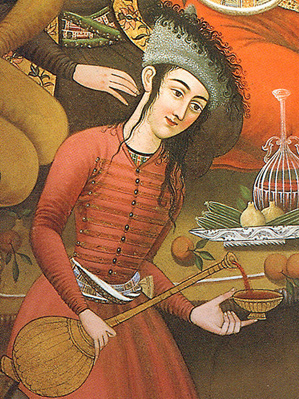
In a previous post I introduced a delightful read and a handy recipe book entitled Ziryab: Authentic Arab Cuisine by Farouk Mardam-Bey and illustrations by Odile Alliet. The “Logbook” at the end of the text is an entertaining alphabet of stories about Arabic good and drink. Here is the selection on a type of wine that the Prophet Muhammad drunk:
N for Nabidh
In most Arab countries today, the word “nabidh” means “wine.” It used to be quite a different beverage, which was made by macerating grapes, dates, or other fruits for some time in water. The Prophet himself loved it. According to the most authentic hadith, he never let the fruit macerate longer than three days. But such a beverage tends to ferment quickly in the heat, and a furious controversy developed among Muslim lawmakers, about whether or not it was licit to drink it. For most of them, the Malikitesm the Shafi‘ites, and the Hanbalites, as well as the Shi‘a Muslims, it was not permitted, and those who drank nabidh were to be punished with forty or eighty lashes, just like those who drank wine. On the other hand, the Hanafites were nice enough to authorize this drink under certain conditions. And the Mu‘tasilites – Jubba’i among them believed that the faithful could drink it as much as they liked in order to get familiarized on earth with the pleasures awaiting them in the Hereafter. Continue reading N is for nabidh…
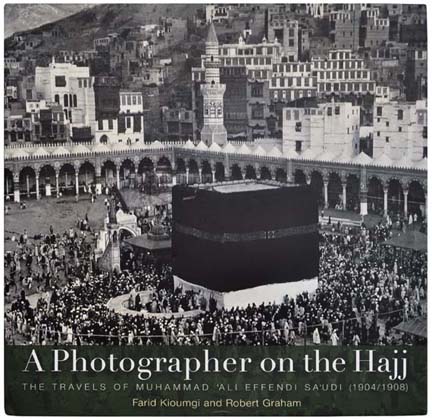
AUC Press has recently published A Photographer on the Hajj, preserving one of the earliest visual records of the Hajj and the holy cities of Mecca and Medina. The photographs were taken by Muhammad ‘Ali Effendi Sa’udi (1904/1908), a civil servant and accomplished photographer. Check out the website dedicated to the book with a few of the photographs shown there.

The Turkish sci-fi film that has become a cult classic because it is so awful is now available online in its entirety with English subtitles. Released in 1982 as Dünyayi kurtaran adam, it is most famous for borrowing scenes from Star Wars. The plot, such as it is, is discussed on Wikipedia. You can check it out for yourself, if you have never seen it and really have nothing else to do.